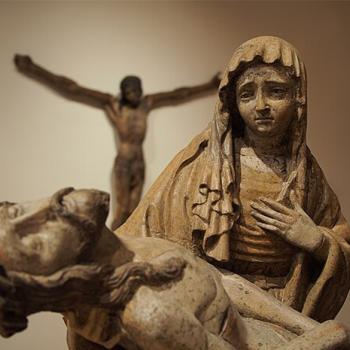Dan Piepenbring comments briefly in The Paris Review on a bizarre fashion trend of the eighteenth century: “During Marie Antoinette’s time, for instance, there was a brief craze for caca-dauphin, a shade of brown that resembled the color of the new prince Louis-Joseph’s soiled diapers. In the most fashionable circles, people dressed to celebrate the royal bowel movements.” He quotes from Michael Taube’s review of The Sensational Past: This awakening of our senses led to some astonishing results, from sensible to... Read more




















